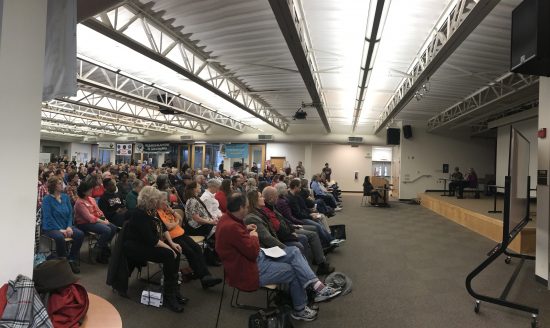Dear friends and neighbors,
We’ve reached the point in the legislative session known as “cutoff.” Last week was the first legislative cutoff of this short 60-day session – policy committee cutoff. Bills not passed out of policy committees by last Friday are dead (not moving forward) this year, unless they’re directly related to the budget. February 6th was the next deadline – fiscal cutoff – for bills to pass out of the fiscal committees.
Our office is working hard to advance important bills before the various deadlines. These cutoffs are essential for the effective operation of the legislature, but make for a fast-paced, often tense period for legislators, lobbyists, and the citizens we represent who closely watch if their bills pass or die.
Below are details of some major pieces of legislation recently voted off the House floor or advanced out of a committee. At this point, these bills are still “alive” in the process.
I look forward to answering your questions about these and other topics at the 27th Legislative District Town Hall on Saturday, February 17th. See below for time, location, and other important information about the event. I hope to see you there.
Sincerely,

Save the date: Town hall meeting

Join Rep. Jake Fey, Sen. Jeannie Darneille and me for a 27th Legislative District Town Hall Meeting
Date: Saturday, Feb. 17th
Time: 10 a.m. to noon
(check-in starts at 9:30 a.m.)
Location: Evergreen State College – Tacoma campus
1210 6th Ave, Tacoma 98405
A solution for our state’s looming long-term care crisis

Every day, an average of 10,000 people across our nation turn 65, a pace that will continue for the next two decades. Yet here in Washington state, long-term care continues to be inaccessible and unaffordable for too many people.
That’s why I sponsored House Bill 2533, a bipartisan solution called the Long-Term Care Trust Act. It creates a long-term care insurance benefit to help seniors and their families pay for long-term care services and supports. Funds from a one-half of one percent payroll deduction on all workers would be distributed through a program overseen by a public-private commission. Coverage could be used with any certified provider including in-home care aides, adult family homes, assisted living, or skilled-nursing facilities.
I recently wrote a piece for Tacoma Weekly about the bill and how it would work.
Keeping up with increased needs in child welfare

From 2010 to 2016, calls made to child protective services (CPS) increased 42%. Most of the increase is due to the opioid epidemic rippling through every corner of our state. We are working on addressing this epidemic in other legislation, but we also need to address the increased workload in other areas.
Under the current state budgeting process, even when calls to CPS increase, funding remains the same. The funding for the extra workload ends up coming out of other areas, making it hard to provide consistent services to our most vulnerable children. This is not how it works for other, similar programs like adult protective services.
That’s why I co-sponsored House Bill 2008, which the House passed this week.It will ensure the services we provide to children are driven by the actual need, not by current funding levels.Car tab relief bill passes House
Car tab relief bill passes House

After ST3 passed to expand light rail to Tacoma, many of you reached out to me, shocked about the increased cost of car tabs. For many working families, that increase is a major burden.
Our region needs to move forward with light rail and it’s important we uphold the projects that voters approved when ST3 passed. But we shouldn’t be taxing people unfairly. ST3 uses what is called the “1996 MVET” to assess car value and it is widely seen as unfair because it overvalues vehicles. We have a better valuation schedule, called the “2006 MVET” that is more fair and accurate, and closely tracks with Kelley Blue Book values.
I voted yes on a bill (HB 2201) that moves to the 2006 MVET. It was the only bill to have bipartisan support and also keep light rail projects on track, while still returning $780 million to taxpayers. It is now under consideration in the Senate.
